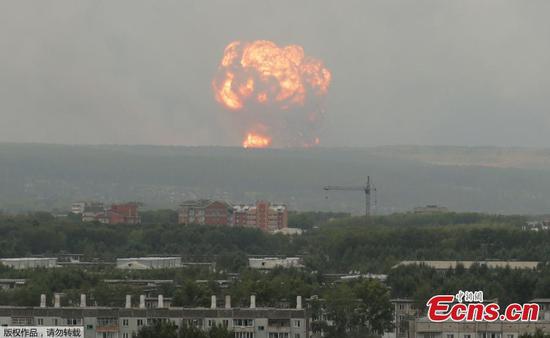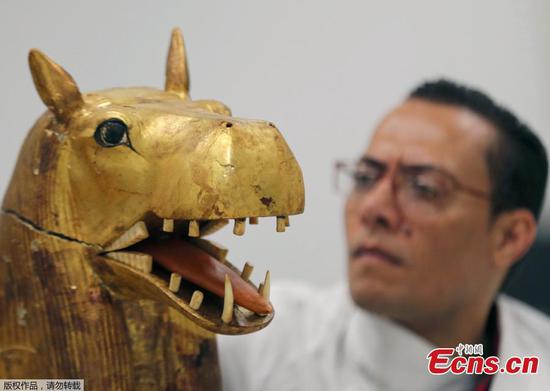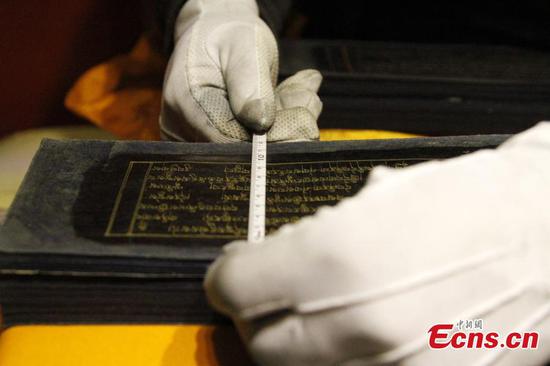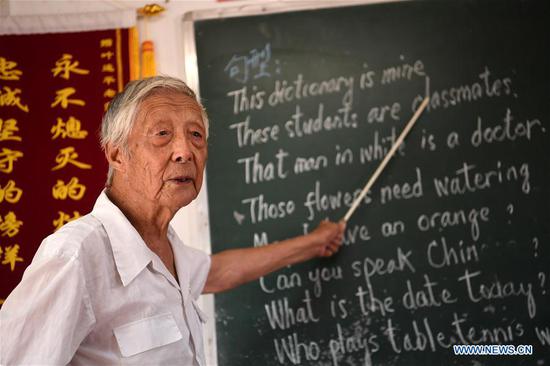As the tariff threat came abruptly, the market reaction was also a little strong, Zhou said.
Ding Jianping, a professor at the Shanghai University of Finance and Economics, told the Global Times that the rise in the U.S. Dollar Index, resulting partly from the Fed's interest rate cuts, has exerted pressure on the yuan to depreciate.
"The yuan's depreciation does not represent any abnormal fluctuations of the domestic economy," Ding remarked.
As Zhou put it, the yuan's depreciation would boost China's exports.
The nation's yuan-denominated foreign trade rose by 3.9 percent year-on-year in the first half, with exports up 6.1 percent and imports up 1.4 percent, per Chinese customs data.
"With the yuan breaching the 7 mark, the market's psychological tolerance of the currency will gradually ratchet up," Wu at Great Wall Securities said.
That suggests the weakening of the yuan will help reduce risks associated with the exchange rate's low fluctuations in the long term, the downward pressure on the economy and asset bubbles, although it would deal a blow to market sentiment in the short run, according to Wu, also a part-time fellow at Fudan University's Development Research Institute.
In its remarks on Monday, the central bank said that the yuan will maintain stability and strength against a basket of currencies.
The 7 mark that the yuan has breached against the dollar is not a number describing its age, nor is it acting like a dam blocking floods. The number seems more like water level marks in a reservoir, which elevate during high flow periods but lower during droughts - meaning, both the rise and fall are the norm, the central bank explained.
Analysts also agreed on yuan stability and flexibility in the long term.
Ding predicts that the yuan will continue to operate normally in the long run and is likely to rebound in the next few months.
The 7 mark shouldn't be considered a line in the sand for the yuan which would continue to see fluctuations in the future but won't see any further, substantial slide, said Lian Ping, chief economist of Bank of Communications.
A raft of economic goals for this year, including the annual GDP growth target range of 6-6.5 percent and the yearly consumer inflation rate of within 3 percent, are on course to be achieved, according to Lian.
Lian noted that the fundamentals of the Chinese economy are expected to underpin the currency's basic stability.
Equally worth noting is that yuan weakness actually serves to offset the impact of the trade war on China.
The flexibility and moderate weakening of the yuan helps in stabilizing growth and ensuring job additions, partly offsetting the shockwaves trade tariffs have sent through the business sector, Wu said.
In Zhou's words, the yuan's depreciation level can cancel out influence from the same level of tariff increases.
The yuan has weakened by about 1 percent so far this year in terms of the daily fixing rate. The yuan's daily fixing was weakened by 229 points to 6.9225 on Monday.
Chinese mainland shares and H shares fell Monday. The benchmark Shanghai Composite Index shed 1.62 percent to 2,821.5 points, while the Hang Seng Index sank 2.85 percent to 26,151.32 points.
U.S. stock also plunged at Monday's market opening. The Dow lost about 1.9 percent, or 500 points, to briefly fall below 26,000 points after the market opened.


















































